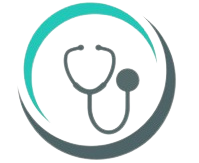DOT/CDL Physicals
Our physicians are extremely knowledgeable regarding the highly regulated commercial driving industry, and can be your partner in maintaining DOT compliance. We assure that only physically capable drivers pass their exams.
Overview of DOT Exam:
The DOT physical is an evaluation of the body and its functions similar in content to an annual physical. It includes a medical history and lifestyle review.
DOT Exam Requirements
The Department of Transportation requires all Commercial Drivers License (CDL) holders to receive periodic physical examinations, entitled “Department of Transportation Medical Examination,” to ensure the ability of the driver to safely operate a commercial vehicle. The US Department of Transportation sets the following guidelines:
- CDL holders (Drivers) must have 20/40 correctable vision in each eye. Glasses or contact lenses are permitted.
- Drivers cannot be a diabetic on needle-injected insulin; diabetes controlled through a diet or oral medication is permitted.
- A driver’s blood pressure must be under 160/100. Prescription medication to control blood pressure is permitted.
- Use of a Schedule 1 drug, amphetamine, narcotic or any other habit forming drug is not permitted.
- If a driver has a current diagnosis of cardiac insufficiency, collapse, congestive cardiac failure or any other cardiovascular disease, he/she will be required to provide the Medical Examiner with a stress test (performed within the last 12 months) along with a release from the driver’s physician stating that he/she can drive a commercial motor vehicle without restrictions.
The Department of Transportation also requires clearance for drivers that have been diagnosed with the following conditions: sleep apnea, recent back injury, recent major surgery, a current hernia, or have had recent workers’ compensation claims.
CDL drivers
The CDL drivers, considered instrumental in DOT drug screening are also made to undergo random drug screens themselves at periodic and regular intervals, which is an obligation for maintaining their license. The required mandatory procedure comes into play while testing for the following: Marijuana, Cocaine, Amphetamines, Opiates, PCP, Barbiturates, Benzodiazepine, Methadone, Propoxyphene, Alcohol (Urine Test)


